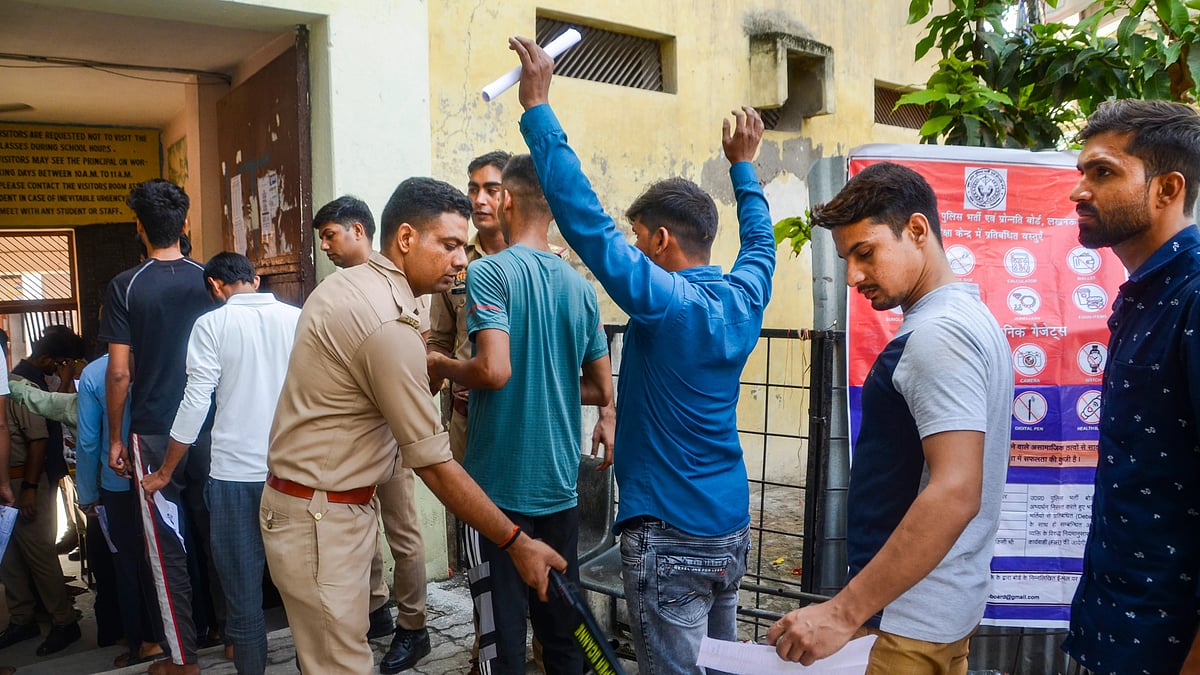Nation
Frisking, jammers and police: Uttarakhand to tighten exam security after leak
The controversy stems from the 21 September graduate exam, when three pages from a Haridwar centre were allegedly leaked

Frisking candidates before and after toilet breaks, installing jammers in washrooms, and deploying police at every examination centre, are among the sweeping measures being prepared by the Uttarakhand Subordinate Services Selection Commission (UKSSSC) after allegations of a recent paper leak rocked the state’s recruitment process.
The Indian Express reported that the Commission has postponed its 5 October recruitment test for cooperative inspectors and assistant development officers indefinitely, citing the need to restore integrity and reassure candidates. The examination, aimed at filling 45 vacancies, had attracted more than 10,000 aspirants holding degrees in Economics, Commerce or Agriculture.
Chairperson Ganesh Singh Martolia confirmed to the newspaper that the decision was taken after consulting candidates. “We are starting afresh. Government schools and colleges will be prioritised as centres, and their security arrangements audited. If needed, aided institutions may be considered, while private schools will remain the last option,” he said.
The latest controversy stems from the graduate-level exam held on 21 September, when three pages of the question paper from a Haridwar centre were allegedly circulated. According to police, a candidate smuggled an iPhone into the hall, took photographs of the paper from a washroom, and shared them with his sister to be solved. Both were later arrested.
The incident triggered week-long protests by aspirants, leading Chief Minister Pushkar Singh Dhami to order a CBI probe. The main accused in the case, Khalid Malik, allegedly admitted to hiding his mobile phone inside the centre a day before the test.
Compounding the scandal, Hakam Singh, a former BJP leader earlier accused of orchestrating a leak in 2021, was arrested a day before this year’s graduate-level exam. He is alleged to have sought Rs 15 lakh from candidates in exchange for help in passing.
Published: undefined
In response, the Commission has announced a suite of stringent security measures. Biometric identification will be made compulsory at all entry points for candidates, invigilators and observers, limiting the movement of unauthorised staff. Candidates will undergo frisking before entering classrooms.
Police officers will be stationed round the clock at centres, while inspection teams will comb the premises a day before examinations. A mock drill of security equipment will also be held.
In addition, the Commission is working with the Hyderabad-based Electronics Corporation of India Ltd (ECIL) to deploy jammers capable of blocking 5G signals. For the first time, these will also be installed in washrooms. Martolia said: “Candidates will be searched before leaving and after returning from toilets to ensure no device is smuggled in.”
Despite the overhaul, student groups remain unconvinced. Ram Kandwal, president of the Uttarakhand Berozgar Sangh, accused the commission of negligence. “If these safeguards were possible now, why were they not in place earlier? The 5 October exam was cancelled only three days prior and proves the Commission was unprepared last time as well,” he argued.
The Sangh has also alleged tampering with optical mark recognition (OMR) sheets and warned of further protests if delays continue. Kandwal added: “The rot is systemic. Unless the exam is conducted soon after notification, these changes will remain more about optics than reform.”
Dehradun, home to hundreds of coaching institutes and thousands of job-seekers from across Uttarakhand, has been left shaken. The 21 September graduate-level test, which had 416 vacancies for posts such as patwari, lekhpal and village development officer, saw more than 40,000 candidates sit across 121 centres in the city alone.
For many, the repeated leaks and cancellations have not only undermined confidence in the system but also prolonged the uncertainty over their careers.
With agency inputs
Published: undefined
Follow us on: Facebook, Twitter, Google News, Instagram
Join our official telegram channel (@nationalherald) and stay updated with the latest headlines
Published: undefined